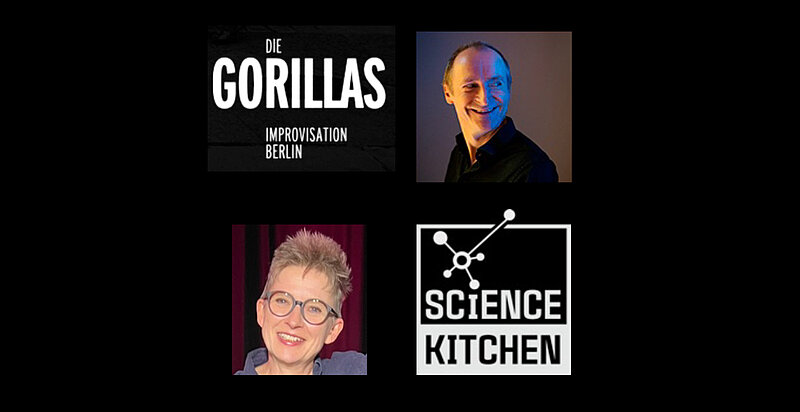On September 29th, the Physics of Life (PoL) community hosted a unique and highly engaging science communication workshop titled "Improvisation for scientists: At home outside the comfort zone." The workshop, organized by the PoL PhD and Postdoc representatives, ran from 11 am to 5 pm and saw attendance from researchers across all career stages, including MSc students, PhD candidates, and Postdocs.
The workshop was expertly led by Prof. Leonie Ringrose from Science Kitchen, a former professor in molecular biology (2015- 2024) and specialist in science communication, and Thomas Chemnitz from Die Gorillas Improv Theater, an experienced improv theatre performer, teacher and corporate trainer.
The aim of the workshop was to unlock the participants' potential to improvise on the spot, and to apply that crucial skill to communicating their own science to any audience, without compromising on precision. Using games and exercises drawn from the world of improvisation theater, combined with insights from Prof. Ringrose's own scientific background, the facilitators helped activate and expand the participants' ability to think on their feet, collaborate, take risks, and enjoy both success and failure.
The group began by learning basic improvisation skills and storytelling, before exploring how the basics of storytelling also apply to science. Participants then experimented with two key concepts: “dare to simplify” and “dare to humanize”. The two concepts were harnessed to test whether audiences could better grasp and remember science presentations when they were applied. The goal was to find the point where the listener understands and cares about the science, and the speaker is satisfied with the accuracy of their message. It was only possible to reach this point by being present, collaborating, and by both listener and speaker paying attention to each other: essentially, all the skills required for improvisation theatre.
The day concluded with a mini science slam, in which participants were invited to present their projects to one another, present their colleague’s project, or present a project with audience participation. Participants felt that there had been a perfect balance between the improv and the science, and that the synergy between the two was invaluable. Not only did they have a lot of fun, but they also learned new skills to take with them into any situation that requires live communication. The workshop was a memorable and valuable experience for the trainers and the PoL researchers alike.
